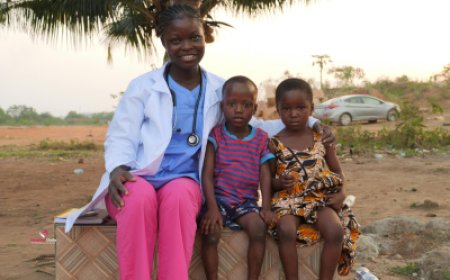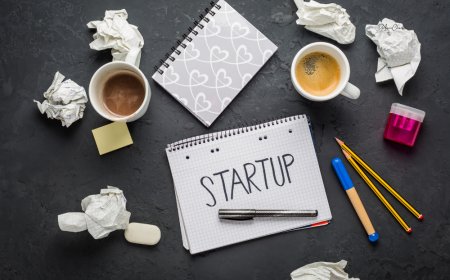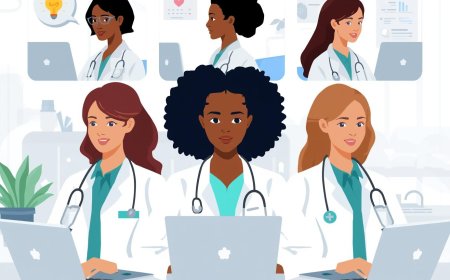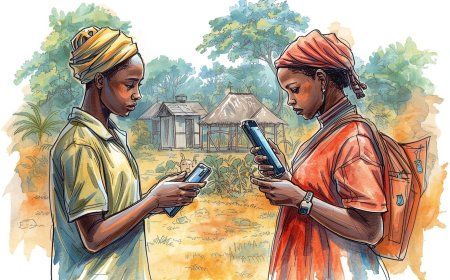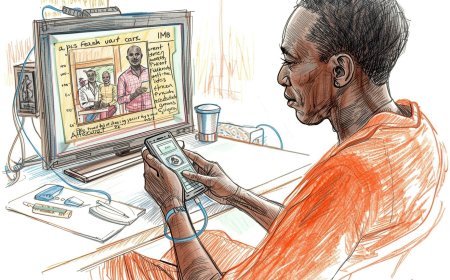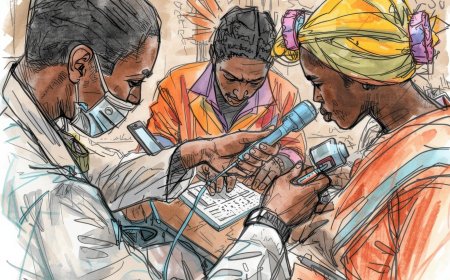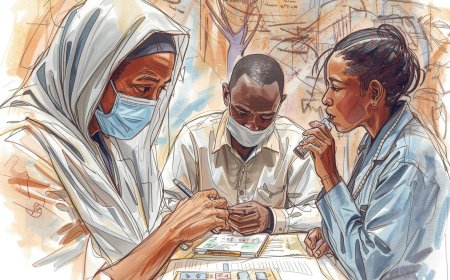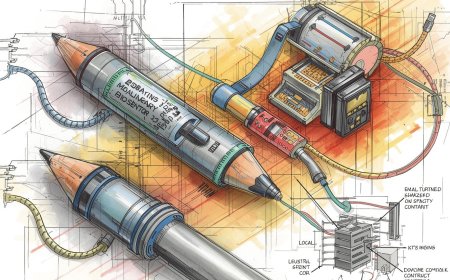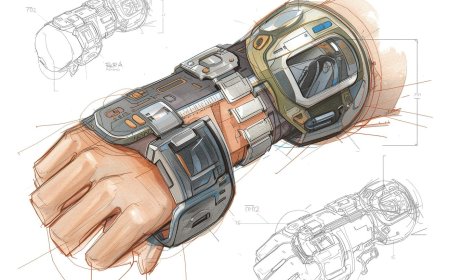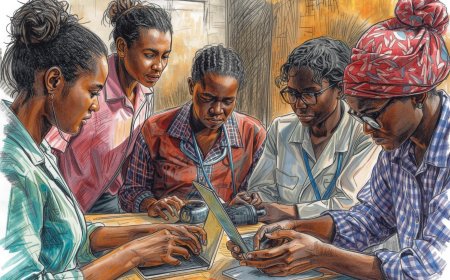What Healthtech Accelerators Really Offer: Beyond the Demo Day
Healthtech accelerators in Africa offer more than just pitch stages and shiny demo days. This article explores what founders actually get—mentorship, clinical pilots, procurement linkages, and credibility that opens doors to investors and ministries. Includes witty African startup anecdotes, practical advice, and APA citations with live, reputable URLs.
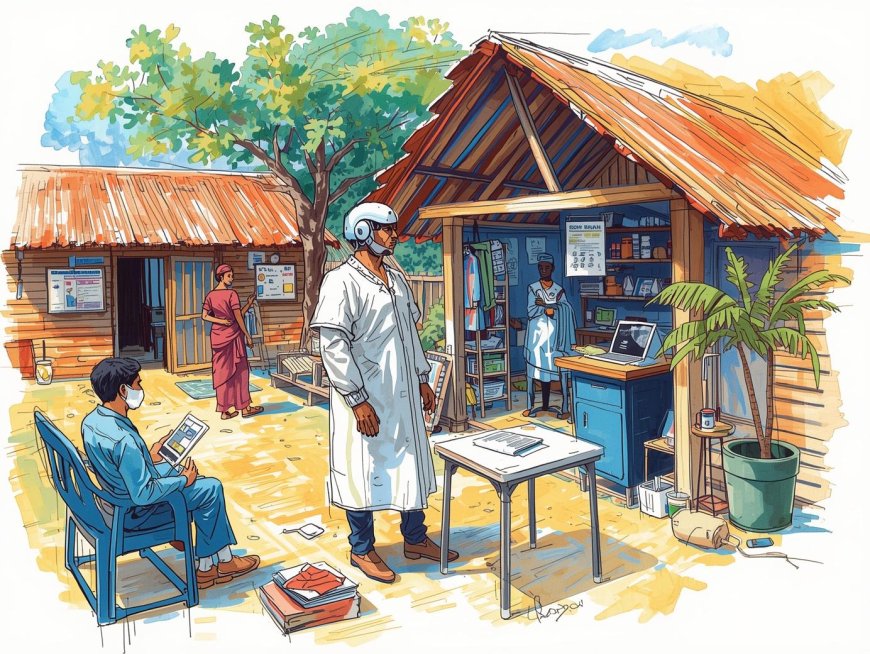
“In Africa, every startup dreams of two things — investment and electricity. And accelerators can help with at least one of those.”
For many African founders, accelerators are like the new med schools for startups — intense, transformative, and slightly confusing. You enter with an idea, leave with a deck, a few bruises, and (hopefully) a network that can change your company’s destiny.
Yet, too often, the spotlight falls on the demo day: that glamorous 7-minute pitch when founders stand before investors, armed with graphs, grit, and nervous sweat. What most people don’t realize is that the real value of accelerators happens long before and long after that stage performance.
This is your guide to understanding what top healthtech accelerators in Africa truly offer — beyond the applause.
1. The Accelerator Mirage: It’s Not About the Pitch
When Nigerian founder Tunde joined an accelerator in Nairobi, he thought the highlight would be the final demo day. But as he put it:
“I came for funding. I left with a network, a mentor, and a pilot deal. The pitch was just the icing.”
African healthtech accelerators — like Villgro Africa (https://villgroafrica.org/), HealthTech Hub Africa (https://www.healthtechhubafrica.org/), and Norrsken Africa (https://www.norrskenfoundation.org/) — are increasingly shifting focus from glamour to grit: helping founders validate ideas, test products in hospitals, and navigate complex health regulations.
2. Mentorship: The Hidden Curriculum
Every accelerator boasts of “mentorship,” but not all mentorships are created equal.
Great accelerators match founders with people who’ve walked the same dusty roads — not just foreign consultants with buzzwords. In Africa, meaningful mentors help you:
-
Understand procurement cycles in ministries of health (“Why your pilot hasn’t been signed in 6 months”).
-
Build pricing models for low-income markets.
-
Connect with last-mile distributors for scale.
For instance, the Co-Creation Hub (CcHub) Health Innovation Programme (https://cchub.africa/healthtech/) pairs startups with domain experts like pharmacists, clinicians, and hospital administrators who help bridge the tech-clinic gap (CcHub, 2024).
3. Pilots: Where PowerPoint Meets the Patient
In healthtech, validation doesn’t come from slide decks — it comes from patient outcomes.
Accelerators increasingly facilitate clinical pilots and field trials by connecting startups to hospitals, NGOs, and ministries. For example, Villgro Africa supports startups like ClinicPesa and Daktari Health to run real-world pilots in Ugandan and Kenyan hospitals (Villgro Africa, 2024).
Pilots help founders refine products, gather clinical data, and attract investors who ask:
“Yes, but does it actually work in Makueni County, not just in your pitch deck?”
Real pilots convert assumptions into evidence — the real currency in health innovation.
4. Procurement: The Secret Shortcut to Sustainability
Funding gets the headlines, but procurement keeps startups alive.
Healthtech accelerators with strong institutional links help startups become vendors, not just demo stars. Through programs like the HealthTech Hub Africa’s Catalytic Partnerships, startups can tap into procurement pipelines of ministries, NGOs, and donors (HealthTech Hub Africa, 2024).
Example: a Rwandan telemedicine startup used accelerator connections to secure a 2-year contract with a public insurer — a deal worth more than any seed round they’d hoped for.
“VCs give you cash; procurement gives you cash flow.”
5. The Funding Funnel: More Than Demo Day Checks
Accelerators do attract investors — but smart founders use that visibility to build trust rather than chase cheques.
Healthtech investors, especially those in Africa, value traction, compliance, and credible partnerships (Briter Bridges, 2024). A startup that’s gone through a reputable accelerator instantly signals quality — “someone else already did the due diligence.”
Top accelerators often bring in investors from:
-
Google for Startups Africa (https://startup.google.com/accelerator/africa/)
-
Founders Factory Africa (https://foundersfactory.africa/)
-
Catalyst Fund (https://www.thecatalystfund.com/)
And even when funding doesn’t flow immediately, the network built can yield partnerships that drive future investment.
6. What to Expect Inside (and After) an Accelerator
| Phase | Key Offerings | Real-World Value |
|---|---|---|
| Onboarding | Needs assessment, goal setting | Clarifies business priorities |
| Mentorship | Weekly sessions with experts | Tailored problem-solving |
| Pilot Design | Hospital or NGO collaborations | Evidence generation |
| Investor Readiness | Pitch training, financial modeling | Polished storytelling |
| Post-Program Support | Procurement, partnerships, media exposure | Long-term traction |
7. African Case Studies: Real Results Beyond the Pitch
📱 Case 1: WellaHealth (Nigeria)
After joining Founders Factory Africa, WellaHealth expanded its micro-insurance model to 20 states, leveraging accelerator support to refine pricing and access new distribution partners (Founders Factory Africa, 2024).
Lesson: Scaling healthtech in Africa requires business model tweaks, not just tech upgrades.
🧪 Case 2: Daktari Health (Kenya)
Through Villgro Africa, Daktari Health piloted its chronic care management platform in 10 public clinics, gathering clinical data that attracted additional grants.
Lesson: Evidence = investment magnet.
💊 Case 3: Remedial Health (Nigeria)
After joining Y Combinator, Remedial Health didn’t just raise funds — it leveraged mentorship to redesign its pharmaceutical supply chain, improving last-mile delivery efficiency by 40% (TechCrunch, 2024).
Lesson: Smart founders focus on operational mentorship, not vanity metrics.
8. Common Pitfalls
❌ Treating the accelerator like a scholarship
Accelerators demand time and effort — if you treat them like free training, you’ll miss the real value.
❌ Expecting instant funding
Accelerators open doors, not vaults. Funding often comes 3–12 months after demo day.
❌ Ignoring post-program support
The real growth happens after the accelerator ends. Stay engaged, share updates, and nurture your mentor and partner relationships.
9. Measuring Real ROI
Beyond valuation, consider metrics like:
-
Number of pilot sites secured
-
Institutional partnerships formed
-
Regulatory milestones achieved
-
Repeat procurement orders
-
Staff and mentor retention post-program
Because in African healthtech, traction beats Twitter hype.
10. Final Thoughts: The Real Demo is in the District Hospital
The real “demo day” happens not on stage but in clinics, pharmacies, and villages where your product is used.
Healthtech accelerators, when chosen wisely, can be the launchpad from prototype to policy — from startup to system changer.
As one Tanzanian founder joked:
“I didn’t get funding from the accelerator. But I got something better — a Ministry of Health email that replies in under 48 hours.”
Now that’s impact.
References (APA Format with Live URLs)
Briter Bridges. (2024). Africa Investment Report 2024. https://briterbridges.com/publications
Co-Creation Hub (CcHub). (2024). Health innovation program. https://cchub.africa/healthtech/
Founders Factory Africa. (2024). Portfolio and programs. https://foundersfactory.africa/
HealthTech Hub Africa. (2024). Catalytic partnerships for scaling health innovation. https://www.healthtechhubafrica.org/
TechCrunch. (2024). Remedial Health scales up after YC support. https://techcrunch.com/
Villgro Africa. (2024). Supporting early-stage health innovations. https://villgroafrica.org/
What's Your Reaction?
 Like
0
Like
0
 Dislike
0
Dislike
0
 Love
0
Love
0
 Funny
0
Funny
0
 Angry
0
Angry
0
 Sad
0
Sad
0
 Wow
0
Wow
0





